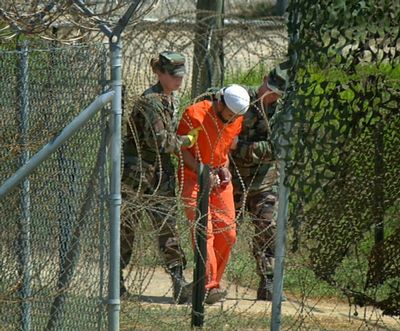Pentagon bans 4 journalists from Guantanamo court
- Submitted by: admin
- Guantánamo
- United States
- 05 / 08 / 2010

GUANTANAMO BAY U.S. NAVAL BASE, Cuba (Reuters) - The Pentagon on Thursday banned four journalists from future sessions of the Guantanamo war crimes court for reporting the name of a disgraced former U.S. Army interrogator.
His name had been widely published during a 2005 court-martial in which he pleaded guilty to abusing prisoners at the Bagram air base in Afghanistan. He had also allowed the use of his name in subsequent media interviews.
But the Guantanamo court declared his name to be secret during his testimony on Thursday in a hearing to determine whether a Canadian prisoner's confessions to interrogators were coerced. He was identified only as Interrogator No. 1.
About a dozen news organizations covered the hearing and about half, including Reuters, did not identify the interrogator by name.
Journalists visiting Guantanamo are repeatedly told that the tribunals known as military commissions are among the most transparent in the world.
But as a condition of attending, they must sign agreements not to disclose anything the ourt deems secret.
The Pentagon said Miami Herald reporter Carol Rosenberg, Toronto Star reporter Michelle Shephard, The Globe and Mail reporter Paul Koring and CanWest news service reporter Steven Edwards had violated the secrecy order by using nterrogator No. 1's name after the judge declared it off-limits.
"As a result of these violations, these individual reporters are barred from returning to cover future military commissions proceedings," Colonel Dave Lapan, director of Defense Department Press Operations, wrote in a letter to their editors.
Lapan said the organizations could send other reporters to future hearings but risked permanent expulsion and criminal prosecution for future violations.
The reporters said their organizations would appeal their ouster.
The American Civil Liberties Union called the banishment "rash, draconian and unconstitutional."
"That reporters are being punished for disclosing information that has been publicly available for years is nothing short of absurd -- any gag order that covers this kind of information is not just overbroad but nonsensical," said ACLU Deputy Legal Director Jameel Jaffer.
Last week the Guantanamo courtroom was closed to spectators for the showing of a videotaped interrogation of Canadian prisoner Omar Khadr by Canadian intelligence agents -- a video that was ordered publicly released by the anadian Supreme Court and is widely available on YouTube.
By Jane Sutton; Editing by Cynthia Osterman
Source: Reuters
Comments